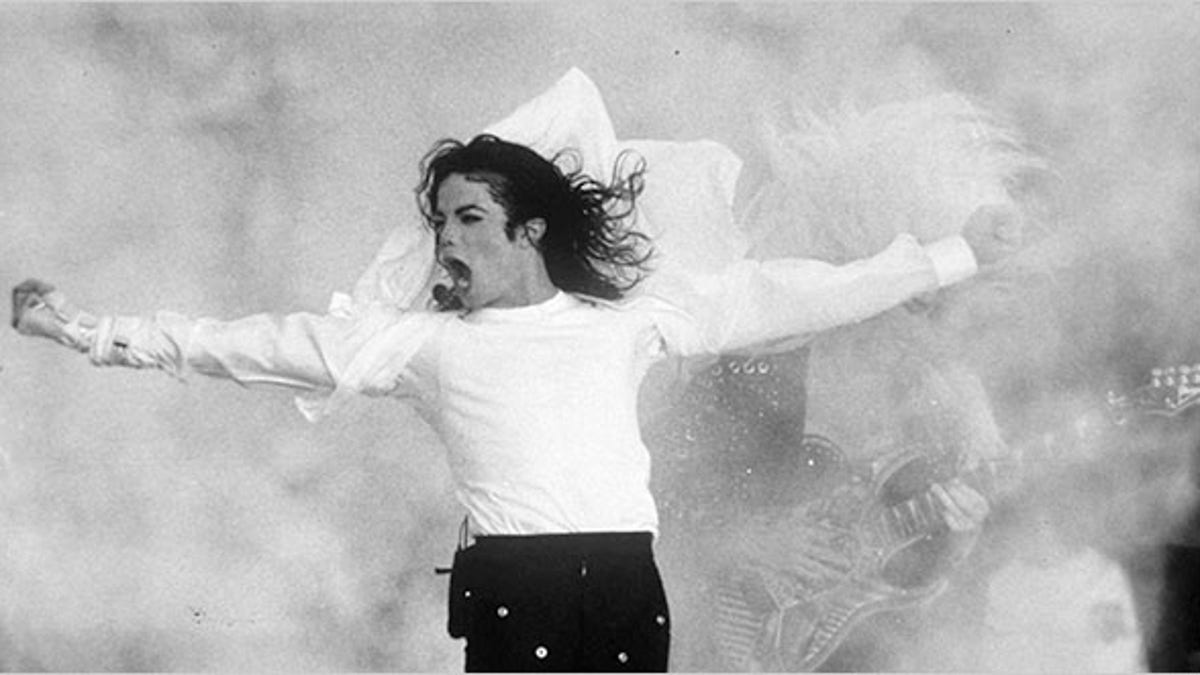
AP (This photograph is protected by United States copyright law and may not be reproduced, distributed, transmitted, displayed, publ)
To suggest that yesterday's death of Michael Jackson represents a tragic and unfortunate event is to vie for Understatement of the Year. From this moment forward, pop-culture chroniclers, gossip-mongers, lovers of his music and moves, and biographers intending to burnish future books will start writing the final, throat-gripping chapters of Jackson's odd, quizzical, extraordinary life, each aiming to happen upon the one angle left untapped and unexplored by the rest. Still, I bet there is one approach no one is thinking about: What role did America itself play in creating the sprawling, bizzare melodrama we'll now and forever call "the late" Michael Jackson?
For in a very real sense, Michael Jackson was not so much the "man in the mirror" as a reflection of America's enduring and embarrassing national obsession with celebrity and fame. From the age of 5 until the age of 50, Jackson was a sociological fetish, an icon we were all too complicit in creating; he was a merchandised, arguably mechanized product. In 2005, when Jackson stood trial in California for the alleged sexual abuse of a 13-year-old boy, he was hardly a sympathetic figure; while I was not part of the jury, I never had a doubt in my mind that something disturbing must have taken place. At the same time, I could see that Jackson himself was something a victim of a lifetime of circumstances. As the frothing media circus surrounding the trial went into overtime and extra-innings, I could not help but reflect upon the fact that Jackson had nothing resembling a normal childhood. Just a video glimpse of that slight, haunted, frightening looking man shuffling aimlessly into the courtroom in his pajamas indicated that here existed a case of arrested development, a man in need of therapy, a grown man either willingly or helplessly detached from time and maturity.
In the end, the tale of Michael Jackson proves once and for all that celebrity and fame in America is a Mephistophelean bargain: your soul, personality and privacy in exchange for seemingly limitless wealth and power. Jackson hungered and thirsted for public adulation because we fostered that addiction within him. Even so, in the last few years it became clear that he needed more and more to try and reclaim some sense of self, to clutch ever more tightly to the lost boy he proclaimed himself to be on the inside. Ruined by too much success too young; ruined by plastic surgery; ruined by rampant rumor; ruined, possibly, by physical, sexual and emotional deficiencies to which few of us are privy, was it any wonder that Michael Jackson saw himself as a real-life Peter Pan? And we, the people, bought it all -- the albums, the outrage, the legend. We have a long history of building up our stars only to tear them down -- Americans, after all, do love a comeback. Except this time, that is, or at least until the next misbegotten megastar comes along.
